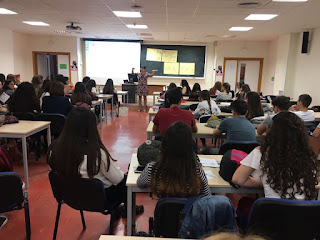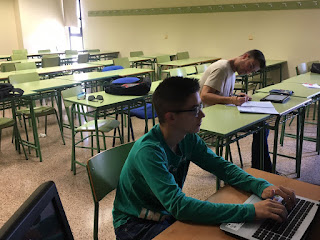Questionaire
What has the development looked like in your school over the 10 years?
Which of the three dimensions are your school strongest? (pedagogical, technological or organisational)
How do you educate your staff and student to become good users of technology?
How much is the technology affecting the economy?
The comprehensive and customized professional development, or as it is called the CPD, that is used to develop teachers skills in the usage of technology. Do your school meet these needs?
Can you explain briefly what are the basic, thematic elements of DisCompOrg Framework?
Technological developments are happening very rapidly and it is difficult to precisely implement it. So, what is needed in the process of DisCompOrg?
Which educational organisations are intended in this framework?
Do you think the technology in your school is as up to date as necessary to adequately us it your lessons?
Do your evaluation methods have a section about technology and its use? Are these evaluation methods revised and updated periodically?
Would you consider that the persons implementing technology actually use it and themselves and are skilled with it?
Apart from the “Class rules” do you have any “Online rules”?
Would you be able to asses and give the enough feedback to a student so that he could practice an “autonomous” learning?
Would you be able to achieve cross-curricular knowledge through technology?
















